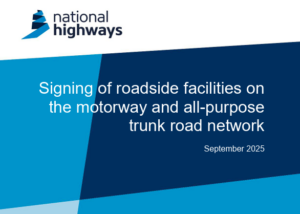The Road Investment Strategy 2, from 2020-2025 has been launched, which comes with a budget of £27.4bn.
This is an increase from the £25.3bn originally suggested and includes the completion of schemes carried over from RIS1 and the development of new upgrades worth £14.7bn by 2025.
Over £20bn of the £27.4bn budget is capital spending, with approximately £6bn for operations, maintenance renewals and business costs and a further £6bn resource spending.
The strategy sets out several maintenance priorities including spending £1bn on renewing structures, replacing safety barriers and other forms of vehicle restraints and working on replacing the ‘first generation’ of concrete pavements.
A further £2bn will be spent on more traditional aspects of renewing and maintenance, including £1.4 billion on resurfacing works.
Around £870m will be dedicated to the Designated Fund, which includes: £140m for safety and congestion, £345m for environment and wellbeing, £169m for users and communities and £216m on innovation and modernisation.
The Government has set out six outcome priorities for Highways England to focus on during the period, which are: improving safety for all, a well maintained and resilient network, fast and reliable journeys, being environmentally responsible, meeting the needs of all users and achieving real efficiency.























